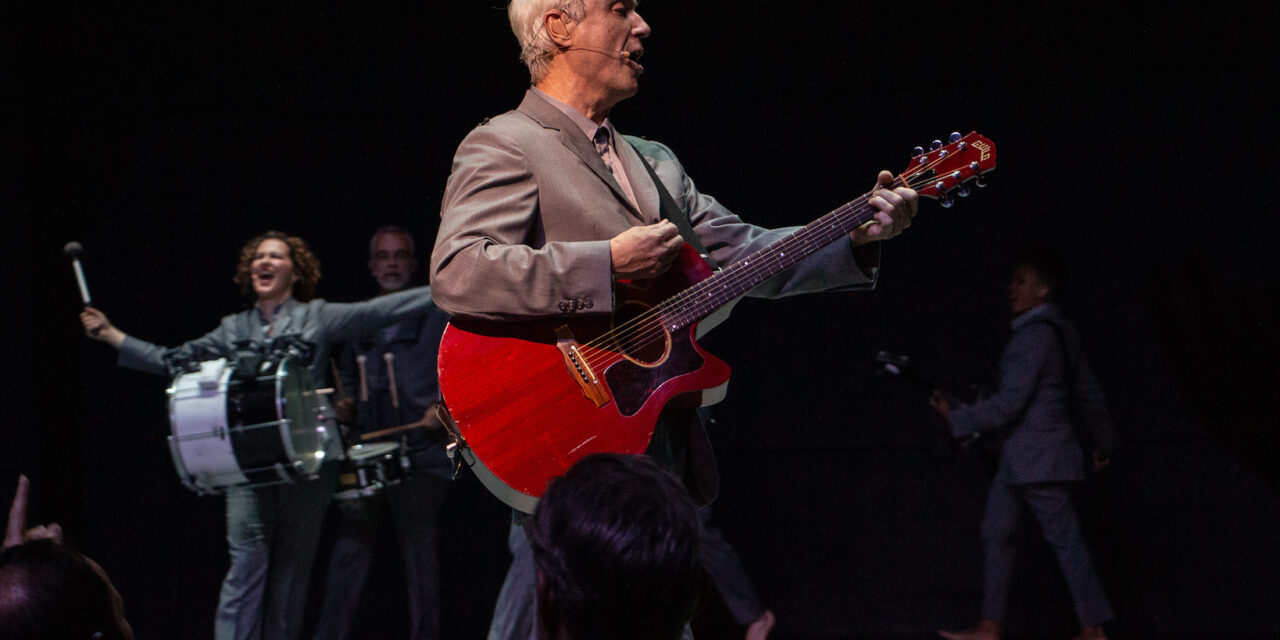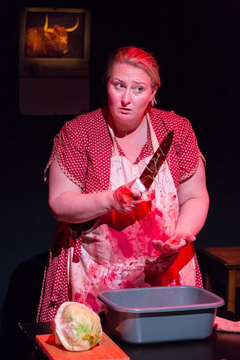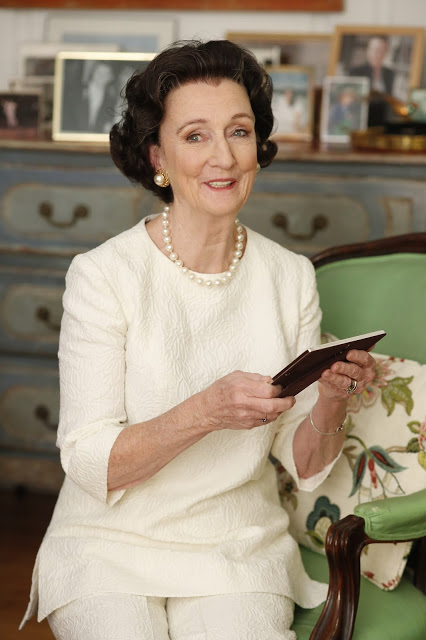Review By JK Clarke . . .
Artist and musician David Byrne has been and continues to be a remarkable force of change and innovation in the world of music. From the formation of The Talking Heads—which bridged the gap between hard driving mid-1970s punk music and 1980s New Wave, changing pop music forever—to his latest endeavor, American Utopia, now playing at the Nederlander on Broadway, he has always sought out the pulse of society and recreated it in musical form. American Utopia, directed by Alex Timbers, is a joyous celebration and think piece that explores what it means to be human and what it means to be American.
It’s fair to say that a large percentage of the audience at American Utopia, which has made a triumphant return to Broadway after a quarantine-induced pause, was there to see and hear Byrne, former frontman of one of the greatest punk/new wave bands ever, The Talking Heads, play some of the band’s hits. And, indeed those fans were treated to a comprehensive survey of the band’s history, from their first album (“Don’t Worry About the Government”) to the last (“Blind”) with others, including the megahit “Burning Down the House” scattered throughout the show. But they also were treated to a magnificent musical experience that featured many of Byrne’s solo works, later collaborations and, more importantly, his business suit-clad, barefoot, instrument-wearing marching band (for lack of a better description), a joyous group made up largely of percussionists (with a variety of recognizable and unrecognizable instruments), but also guitars, a bassist, a synth player and two terrific singer/dancers (Renee Albulario and Tendayi Kuumba).
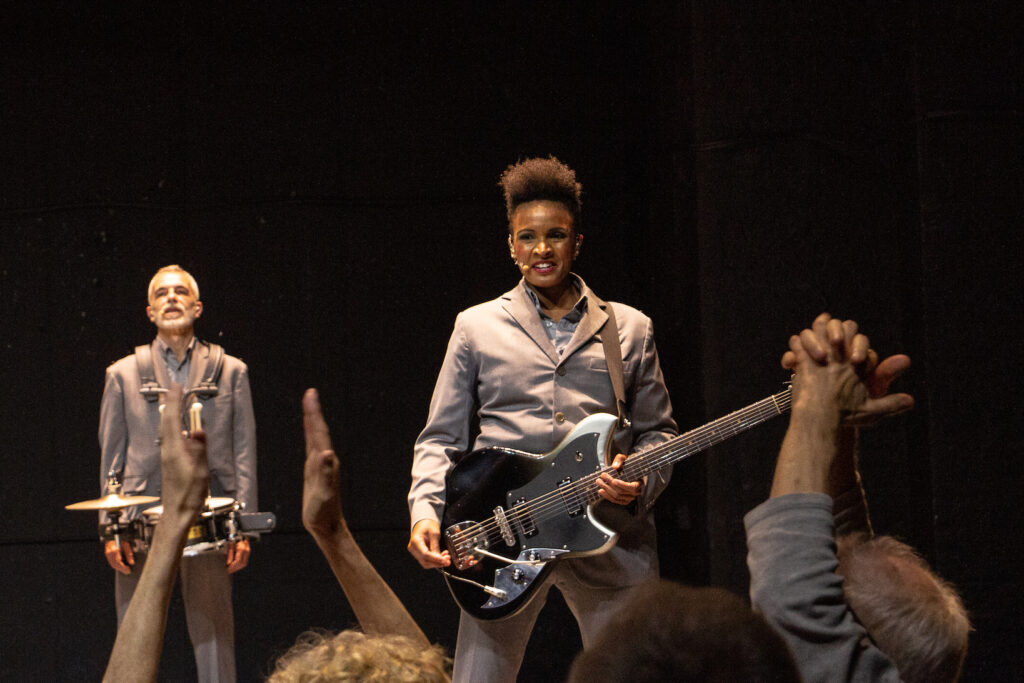
Several years ago Byrne performed with marching bands and color guards, an experience he must have found rewarding, for the band he has gathered here has elements of both, without the structure or rigidity. It’s an exceptionally lively group, clearly enjoying themselves and stunningly talented. The percussion they add to familiar Talking Heads songs adds dimensions and power to the songs not previously realized. The sound the band creates is so rich and full, Byrne reports to us, that journalists have accused him of using pre-recorded tracks to help fill the room. But, no, Byrne insists, and he introduces band members one by one and they begin playing upon introduction until the 11 musicians have flooded the hall with what feels like the music of an entire orchestra. Guitarist Angie Swan is a charismatic force to be reckoned with, as is bassist Bobby Wooten III, always in the middle of the action and enjoying every minute. Special mention should be made of keyboardist (and music director) Karl Mansfield who manages so many of the complex synth and keyboard sounds (on a shortened keyboard no less) Byrne is known for with the harness unit slung over his shoulders as he maneuvers around the stage, a task that would be difficult enough standing still.
There’s a thread that runs through American Utopia. It’s not a jukebox musical that tries to cram songs into a storyline, nor is it a straight up concert. When the show starts, having entered through the beaded metal curtains that surround the stage on three sides and are used to considerable effect, Byrne sits at a table holding an anatomically correct human brain. He explains that when we are born we have millions of neuron connections that gradually disappear throughout life. In between songs he returns time and again to the subject of human connection and societal responsibility; about the importance of voting (without saying for whom) and for caring for the planet. While many theater experiences of late have taken to admonishing audiences for not doing better as people or as a society, Byrne stayed away from scolding. He hopes, he said, that through communication, and music, and art, people could reconnect some of the neurons they had lost throughout life and, ideally, find more joy and satisfaction.
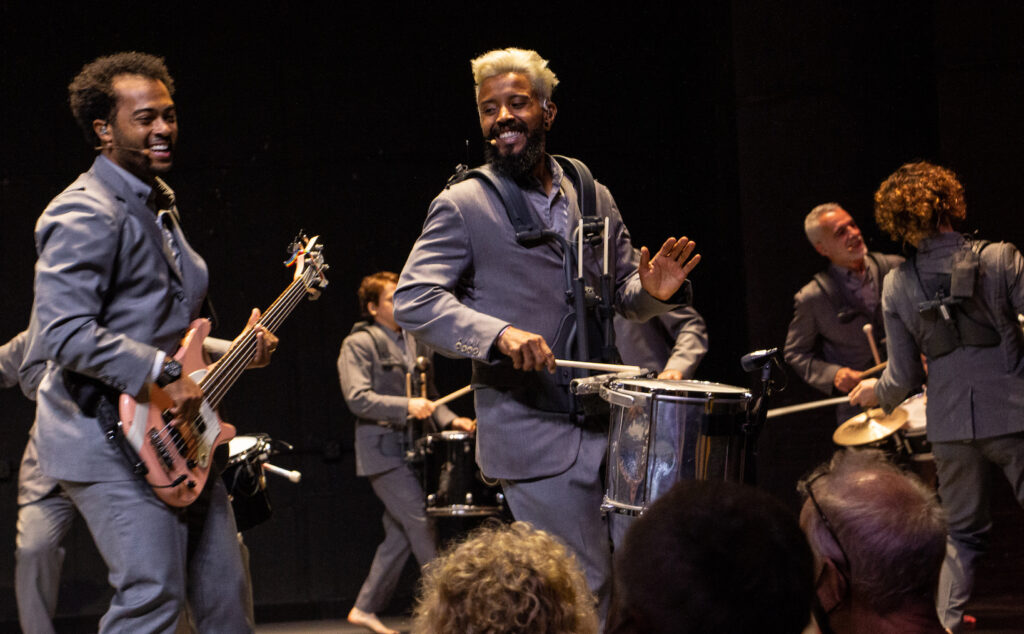

When I was in high school, one afternoon a friend (who’s now quite a “monster musician” himself) pulled out the first Talking Heads album and said, “listen to this, it’ll blow you away.” It did, and it changed the way I looked at and listened to music forever. That I was finally able to see the creator of these songs perform them live was a dream come true. But, better still, it was no mere nostalgia trip, as offered these days by many contemporaneous bands. Instead, it was a journey through changing musical styles and eras, culminating with the introduction of new things to hear and old things to hear in a different way. A true artist, Byrne may no longer be producing Top 40 hits, but engaging in bringing new sounds to enthusiastic souls.
American Utopia. Through January at the St. James Theater (246 West 44th Street, NYC).
Photos by JK Clarke


